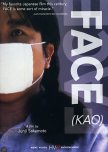
Deze recentie kan spoilers bevatten
“How to Become Myself” could also have been called "how to stop people pleasing".
Have you ever felt like you always have to act in front of people, so they don’t see your true self? Your scared, vulnerable, sensitive self? Have you ever wondered who you really are when you’re not someone else?Who are we when we don’t try to fit in with others?
I think these were the questions the film wanted to raise with a very authentic and inspiring innocence and simplicity.
And I think the final answer could be this:
even when you try to be more or less than you really are, it’s still you.
Your being is beyond what you do or don’t do, your lies or the roles you play. This need, this choice to become someone else to avoid suffering and/or to satisfy and please others is a component of who you are.
There is no need to deny it, you always have the right to be loved and accepted, truly, by others but especially by yourself.
You are not stuck, you can change, you can be someone completely different if that is what you desire and need, your identity is more than what you think. Your identity isn't stagant or rigid, it is free and abondant.
You are the author of your own story, not others. You get to decide how you want to live your life.
This movie could have been done better, that is undeniable. There are many scenes that were a bit too long, more dialogues were also needed, the pace got bad in the middle of the movie even though it is obviously a slow paced movie...
However, the beauty of the heart of the movie remains intact and very powerful, because it is about self-identity.
The intimate theme of self-identity is so complex that, obviously, only a truly innocent approach could answer it naturally. And that's exactly what the movie did.
I think people, situations, and things are complex only because there is a refusal to face and accept the simplicity of the reasons that motivate the complexity...
The boy says to the girl, "I don't understand this 'real me' and this 'fake me'. I love that Hanada Kanako is in front of me. Can't I? Can't I love you?"
And the girl realizes that she has misunderstood what love really means; it was only when the boy enlightened her with a simple truth that she began to understand.
When you see what true love is, how simple it is, you understand that you don't have to do anything for people to like you or not. You just have to be yourself no matter what. True love conquers all, true love means unconditional acceptance.
A scene made me cry and touched me deeply and I want to share these inspiring lines to motivate more people to try this movie :
"I didn't want to accept myself living here right now as the real me.
Because she's so dull and uncool.
"It's the fake me, so it can't be helped." It made me feel better thinking that way.
But I found out.
The cowardly me, the role of myself that I play, they're all me.
Me, who wants to run away, me, who lies ... and also me, who gets hurt ...are all me."
Vond je deze recentie nuttig?

A happy ending is not mandatory... It's okay to leave behind the people who hurt you !
The first 20 eps were truly incredible, all the themes around family and what this word truly means were very inspiring.I love how the fathers (mainly thanks to Hai Chao) built for their children the best they could a family, and a stable and warm home.
The casting was very well chosen but I think the acting of Song Wei Long was bellow in comparison of the rest of the main cast tho. He did a better job during the last part.
After ep21, the drama was ok but not as good.
It was too much of that fake triangle insinuations and many scenes with 3rd characters I didn't care about.
The development of the lovestory between Jianjian & Ling Xiao didn't get me interested as I was in the beginning of the drama, probably because their chemistry was good, cute but not that deep ...
Yang Tong Shu, Tu Song Yan and Zhang Xin Cheng put the best acting performances imo.
Tan Song Yun's perf on the 1st part was great, I wasn't that impressed in the 2nd part.
I was expecting "a masterpiece" as many people stated, it was not, it was a good drama with more flaws that people let us believe...
It was tiring and triggering to watch the writers try to force us to accept the excuses of the toxic parents who chose to abandon their children and having to see those same children becoming adults still having to "compromise" for those awful parents, just for the sake of pleasing a certain chinese moral standpoint, and for it to please the censorship... and to also please the idea that in the end of a story, we need things to get better at any expense, even against common sense, that we need an answer to every situation even those dark and complexe ones ...
I think the drama needed a more mature dimension in the writing to deliver a real, honest raw ending to truly respect the representation of what dysfonctionnal family and toxic parents are and what they lead to.
Vond je deze recentie nuttig?

"There are beings that exist that you can't even imagine."
Much more of a theater play than a film to me, the movie makes a fascinating mixture between esotericism and psychology.Aragami sometimes reminds me of Coppola's film Dracula and sometimes Zeffireli's Hamelet but still, with an unique style od its own, a precise and well thought mise-en-scène and enigmatic acting performances that keep you in suspense !
In a silent and isolated room, a room that resembles a deep and secret thought full of imagination, strangeness, and the unknown, the destinies of a man, a demon and a witch (?) are colliding.
In this same room, the mystery and magic of their world is revealed.
Lurking in the shadows, one of the secrets of the mystery finds the light :
"There are a lot of people who look human but are not ... They are human, yet they are not human."
Vond je deze recentie nuttig?

There is true beauty, real magic in just doing your best !
A hidden gem of a coming-of-age film, the film features a headstrong but utterly charming girl who decides to join an all-male rowing team.By staying true to her desire to join the team, she inspired other girls to join. She finds pride in her activity, her friendships, her difficulties and her doubts, she learns to face the romantic feelings she hides for her childhood "enemy", but above all she learns how much she can be strong and perseverant.
The film inspires people to be braver, even if it's just a small step, to be bold enough to do something for yourself, even when people don't understand, even when it's hard, even when it seems impossible to do. The film tries to inspire people, especially young people, not to be afraid of the difficulty of what they want to do, and not to be motivated only by the outcome, because there is true beauty, real magic in just doing your best.
Stunning soundtrack, gorgeous directing, lovely chemistry of the cast, the directing was beautiful. The pacing wasn't the best, and more dialogues could have made the movie more impactful.
Vond je deze recentie nuttig?

Deze recentie kan spoilers bevatten
The right to exist !
The movie was very good but I think some scenes were incredibly insensitive in several ways...It is the story of a woman treated throughout her life as less than nothing, like an outcast. The heroine, although suffering from a dysfunction of her mental abilities, nevertheless manages to be very lucid about life, much more lucid than many people who have retained all their mental faculties...
She understands that the world sees her as nothing, that she is not seen as someone who is entitled to the same consideration and respect as others simply because of who she is, as a human being . She is not surprised by the mistreatment she receives, nor the mockery, lies, etc. She accepts her reality.
And yet, (and this is where the heroine is truly inspiring and this film reveals an incredible depth in the writing) Yoshimura Masako despite everything, how cruel life can be, the injustices, the good and the bad, the wounds, heartbreak and traumas, firmly embraces her will to live, to embrace her life with all the strength she has left, and how strong she is ?! She is a force of nature! After all, it really is his life! HERS !!! It's her life and she wants it! She wants to live and own her life as best she can !!!
"Don't need forgiving."
She has been treated cruely, with so little love and appreciation that it is so natural for her to not even be inclined to believe that the world would ask her for her forgiveness, that people would care, that they would show remorse. And she also know she doesn't have to forgive people to be able to move on. Nobody asked, and she never intended to give it anyway ...
She doesn't try to ask for forgiveness either. She doesn't need it to continue. All she has is herself and her ability to be resilient and yet also her ability to love the good people she would meet.
She murders her worst bully, her own sister because this same sister wanted her dead, she despises her so much that she was ready to deny her own sister the right not only to exist but also to be loved simply because she wasn't "normal", so of course Masako decided to kill her before she does.
This murder isn't really the focus of the movie, but rather Masako's will to live. Of course we see her really regretting and being afraid of what she did, and of being caught by the police, being afraid of that the world would see her as a monster, but the center of the film, in my opinion, is to navigate between the character's journey living through different emotions, but also her own will to continue to cling to life, even when that same life was cruel to her. She doesn't want to deny her right to exist, so many people already did, she refuses to be become her own bully ...
She continues to move forward, without necessarily believing in anything (god, universe, etc) or keeping some sort of high hope in life, god, or the universe, but simply by her pure will and desire to get through life as best she can. She never considered herself a loser just because people might have seen her that way, no, she was Masako no matter what the world would say about her ! She walk with pride, she walks with her head held high, she does not spend her time in a victim mentality, without constantly having to ask herself existential questions which will in any case have no impact on her reality, without denying herself the right to love and to trust tstrangers, because she knows that in any case, she cannot avoid the dangers of life, she cannot avoid being betrayed by people. All she can do is move forward!
She faces life as best she can and keeps moving through her own sad, tragic but yet still, still precious and valuable existence with all her might!
Vond je deze recentie nuttig?

Seeking true connection is what we all want to be able to do...
The film, although filmed almost 30 years ago, remains completely relevant.The two characters form a sincere online friendship without ever having met. They get to know each other through the emails they send each other. Despite the lies, the sometimes long-awaited answers, they manage to prolong their friendship because of the unconditional acceptance of the other.
Perhaps this acceptance was facilitated by the fact that they never met, the lies are forgiven more quickly because they do not have to confront their feelings of shame or guilt face to face.
The film could have been better made, however I always loved how most Japanese films and dramas of the 90s face the daily life. I really admire the fact that often the ordinariness is made less unbearable than in reality. There is a lot of comfort in what the film gives us but also a sadness that is ... accepted.
We can still lead our life in a courageous way, it can still harbor a form of beauty that belongs to us, even if our life is not full of exceptional events, of constant adventures...
Continuing to live is already an exceptional act, we carry within us magic much more than life carries, and we don't always see it.
We all have responsabilities and boreness in our life, and that's okay, we all go through this sentiment of feeling stuck in the same daily routine of our lives. But yet, there is still a space where you can find beauty in it.
It is increasingly difficult to form real relationships in our daily lives in our increasingly individual societies, and having to communicate via email or social networks now is both sad, perhaps even tragic, but also allows us to find a certain sense of hope.
The real beauty of this film is in the characters' innocent and powerful will to see the best in each other, and to maintain a constant connection between them despite obstacles. Their willingness to connect is very pure.
I also really like how the movie normalizes the feeling of loneliness. At no point is there any motivation of sensationalizing the fact of choosing to be alone or to isolate oneself. The film doesn't try to make the spectators sad or to feel sorry for the characters, but to understand them and accept their choice of life. Sometimes choosing to isolate oneself is not a dramatic thing, but simply a choice of living to gain some respite, to not have to suffer so intensely in front of the world which continues to move forward, that same world who prentend to not see you or how you feel.
Seeking a true connexion, feeling seen and heard, accepted and cherished is what we all want to be able to do. Don't we ?
Vond je deze recentie nuttig?

When words are absent or insufficient, the mind finds another way to externalize the suffering.
Undo is a purely artistic film. It is about a visual representation of a psychiatric disorder.Although as a movie, the narrative structure, the lack of dialogues and relevant scenes to give us more context needed of the story, the film is a unique sensory experience to watch !! The directing is absolutely stunning.
It is pure visual art, more than a film.
Moemi and Yukio are long time lovers, but their relationship is fading away. They love each other but aren't in love anymore.
Moemi is trying to change things to fix their relationship but Yukio is uanble to express what he really feels. She is willing to stop her own evolution just for the sake of Moemi being able to see in Yukio what made him in love ... (her choosing to put back her braces because he was used to them)
"You don't like it?"
Moemi's insanity starts. She has this compulsive need to attach things to her, so that they don't leave her. And in the movie, I feel like it started when Moemi asked Yukio why their kiss didn't feel as good as before (but she felt it too, she knows when she kisses him, the intense feelings aren't there for her too) .
He couldn't really answer, he couldn't give an answer, simply because he really didn't know why his love had changed, she started to brush his hair, her hands yearned for his hair, as if she wanted to hold them, because indeed both were noticing how far they were drifting away.
The braces were just a symbol of it, and now knoting things is the only way she finds to cope with the traumatic revelation that their love is dying by itself, with no actual real reason than the simple exhaustion of romantic feelings.
An ‘Obsessive Knot-Binding Syndrome’.
Vond je deze recentie nuttig?

Deze recentie kan spoilers bevatten
The story of how destructive "male desire" can be ...
The main casting is very good but the direction makes the acting of the characters completely uninteresting. The film is very difficult to watch because the direction and editing are quite bad.From an artistic point of view, I find the film interesting but I didn't like execution, there was a huge lack of sensibility but from a writing point of view, the film is much deeper than it seems. The writing is very subversive. There are a lot of scenes that I didn't understand, many things are honesly so confusing too ...
Those things being said, I would like to share my own interpretation of the story:
Sozaburo Kano is treated throughout the film by the characters and even by the director as an object of desire, what he can say or think don't matter, he is a simple object at the mercy of male desire. The simple existence of Sozaburo, well beyond his physical appearance, provokes in those men more than obsession but a desire to possessed and corrupt him for their own plessure. He has no say, the desire of men only sees itself.
At no time does Sozaburo, although displaying a constant coldness and apathy throughout the film, ever express his consent. Sozaburo is a victim whose silence is taken as an acceptance of everything that all these men project into him.
We see him very clearly being harassed by this male desire, but he seems not to react at all. He knows his reaction won't change anything. And he seems to not even be suprised but more used to this treatment. It feels like he learned to play with apparences since probably very young, to not only be the victim somehow ... The psychology of this character is truly intriguing, and his story is deeply tragic.
And yet, towards the end of the film everything becomes clearer. Sozaburo Kano is a much more complex than it seems. He hides his real skills, he pretends to be a worse fighter than he is yet we grasp the fact that he tries to deceive the men around him by playing along the role that this "male desire" has forced and imposed on him, precisely we understand that his goal is to use that desire against them.
I see in Kano's actions a fatality, and a silent passivity that is already beginning to investigate revenge.
What is fascinating is that we understand that his agenda is to reverse this narrative of prey/predator spectrum that this male desire has forced on him.
His silence, his coldness seems to be the result of his life spent having to deal with trashy mens whoa bused him, to know how to adapt through the desire of these monsters. And the only purpose for his pain to him, and the repeated injustice of these crimes committed against him seems to be v'olence. He say it early on in the movie, he was there to k'll.
Who Sozaburo Kano loved? No one I think. I believe he has let all those rumours around just to be able to move silently in his plan, he was playing along, but not in their game but his own.
Soji and Kano might have a certain mutal understanding somehow but I also believe Soji loved Kano... I think he might have k'll Kano out of jealousy, because he realized Kano had feelings for Tashiro somehow ...
Kano might have caught some feelings for Tashiro even if he was using him, because Kano seems to be unable to fight Tashiro properly which I believe indicated his probable tourmoil about him. Tashiro forced himself on him for sure but somehow Kano feels something for him .. not sure why or what, but I do believe there is a mix of different feelings, hating him but also having some affection for him (a sort of stockholm sundrome).
Before k'lling him, he asked his forgiviness ... yes, he used this to be able to k'll him but he used truth to be able to fool him, that's why Tashiro believed his words.
Soji pretended he couldn't hear what Kano was saying to Tashiro, but I think he did. His instant pasisonate jealousy led him to k'll Kano.
"This sort of thing has happened before. Hearts inflamed by passion ... It must not happen again."
Vond je deze recentie nuttig?








